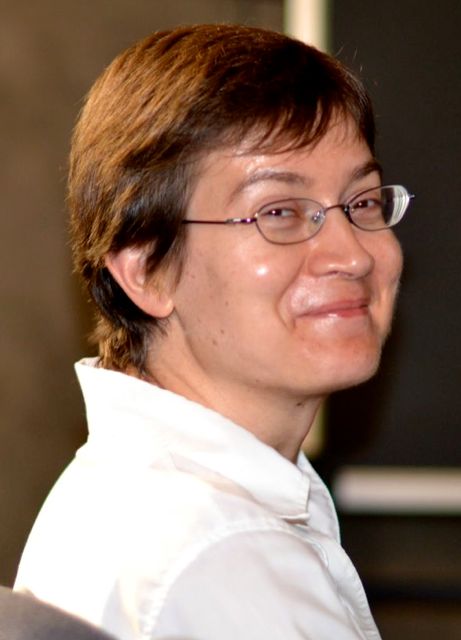Studying at the University of Verona
Here you can find information on the organisational aspects of the Programme, lecture timetables, learning activities and useful contact details for your time at the University, from enrolment to graduation.
Academic calendar
The academic calendar shows the deadlines and scheduled events that are relevant to students, teaching and technical-administrative staff of the University. Public holidays and University closures are also indicated. The academic year normally begins on 1 October each year and ends on 30 September of the following year.
Course calendar
The Academic Calendar sets out the degree programme lecture and exam timetables, as well as the relevant university closure dates..
| Period | From | To |
|---|---|---|
| I semestre | Oct 1, 2012 | Jan 31, 2013 |
| II semestre | Mar 4, 2013 | Jun 14, 2013 |
| Session | From | To |
|---|---|---|
| Sessione straordinaria | Feb 4, 2013 | Feb 28, 2013 |
| Sessione estiva | Jun 17, 2013 | Jul 31, 2013 |
| Sessione autunnale | Sep 2, 2013 | Sep 30, 2013 |
| Session | From | To |
|---|---|---|
| Sessione autunnale | Oct 18, 2012 | Oct 18, 2012 |
| Sessione straordinaria | Dec 12, 2012 | Dec 12, 2012 |
| Sessione invernale | Mar 21, 2013 | Mar 21, 2013 |
| Sessione estiva | Jul 16, 2013 | Jul 16, 2013 |
| Period | From | To |
|---|---|---|
| Festa di Ognissanti | Nov 1, 2012 | Nov 1, 2012 |
| Festa dell'Immacolata Concezione | Dec 8, 2012 | Dec 8, 2012 |
| Vacanze di Natale | Dec 21, 2012 | Jan 6, 2013 |
| Vacanze di Pasqua | Mar 29, 2013 | Apr 2, 2013 |
| Festa della Liberazione | Apr 25, 2013 | Apr 25, 2013 |
| Festa del Lavoro | May 1, 2013 | May 1, 2013 |
| Festa del Santo Patrono di Verona - San Zeno | May 21, 2013 | May 21, 2013 |
| Festa della Repubblica | Jun 2, 2013 | Jun 2, 2013 |
| Vacanze estive | Aug 9, 2013 | Aug 16, 2013 |
Exam calendar
Exam dates and rounds are managed by the relevant Science and Engineering Teaching and Student Services Unit.
To view all the exam sessions available, please use the Exam dashboard on ESSE3.
If you forgot your login details or have problems logging in, please contact the relevant IT HelpDesk, or check the login details recovery web page.
Should you have any doubts or questions, please check the Enrollment FAQs
Academic staff
 luca.vigano@univr.it
luca.vigano@univr.it
Study Plan
The Study Plan includes all modules, teaching and learning activities that each student will need to undertake during their time at the University.
Please select your Study Plan based on your enrollment year.
1° Year
| Modules | Credits | TAF | SSD |
|---|
2° Year activated in the A.Y. 2013/2014
| Modules | Credits | TAF | SSD |
|---|
| Modules | Credits | TAF | SSD |
|---|
| Modules | Credits | TAF | SSD |
|---|
| Modules | Credits | TAF | SSD |
|---|
Tre insegnamenti a scelta tra i seguentiLegend | Type of training activity (TTA)
TAF (Type of Educational Activity) All courses and activities are classified into different types of educational activities, indicated by a letter.
Systems security (2012/2013)
Teaching code
4S02799
Teacher
Coordinator
Credits
6
Language
Italian
Scientific Disciplinary Sector (SSD)
ING-INF/05 - INFORMATION PROCESSING SYSTEMS
Period
II semestre dal Mar 4, 2013 al Jun 14, 2013.
Learning outcomes
The system security course aims to provide the fundamental knowledge necessary for specifying and analyzing security policies designed depending on the features of the system to protect, and on the information to protect.
In particular, the course proposes an initial overview of the basic concepts, and then focalizes on the security of operating systems, with particular attention to authentication and authorization, on software security, on software vulnerabilities in presence of malware, and on security databases.
Finally will be treated security management and legal aspects of computer security.
Program
Il corso svilupperà i seguenti argomenti:
1) Introduction:
- Notion of security and tasks of security (confidentiality, integrity and availability)
- Risk and assets analysis
- Vulnerabilities (hardware, software, data and comunication)
- Defenses
- Principles of information security
2) Classical Models
- Policies and models
- Policies: confidentiality vs integrity
- Access control (Autentication vs Autorization)
- DAC models (Harrison-Ruzzo-Ullmann, Graham-Denning, take-grant)
- Multilevel security (MAC)
- Classical models (Bell-LaPadula, Biba, Clark-Wilson, Chinese Wall)
- RBAC
- Non interference
3) Standard Meccanisms
- Autentication
- Autentication vs Identification
- Autentication (password-based, token-based, biometric)
- Attacks and protection
- Meccanisms for access control
- Intrusion detection systems
- Execution monitors
4) Data base security
- Relational data base security
- Access control and SQL
- Statistical data base security (Aggregation, inference and kind of attacks)
- Multilevel data base security
- Security and Data mining
5) Software
- SW Vulnerabilities
- Input management: errors vs attacks
- Store management: Buffer overflow
- Other kind of SW attacks
- Malware
- Kinds of malware
- Virus (Definitions, propagation methods, defence methods)
- Worm
- Backdoor (trapdoor), Troian horses and other malware kinds
- Models
- Defenses
6) Legal aspects of security
- Privacy and computer science
- Cyber crimes
- Ethical aspects
7) Security management
- Physical manaces to security
- Pianification and human issue
- Economical aspects of security
Examination Methods
L'esame sarà strutturato in due parti e può essere espletato in due modi:
Scritto+Progetto
- Uno scritto nel quale mediante domande e semplici esercizi si valuterà la preparazione dello studente sull'intero programma del corso.
- Un progetto/approfondimento fatto da gruppi di massimo due persone il cui argomento può essere anche proposto al docente da parte del gruppo stesso. Tale progetto sarà presentato sottoforma di una relazione scritta e di una presentazione orale.
Il risultato dell'esame sarà poi ottenuto dando una valutazione in 30esimi (rapportato poi a 24 + 2 punti per la presentazione) al progetto e una valutazione allo scritto in termini di bonus (valutazione insufficiente=ripetere lo scritto, scritto sufficiente=da 1 a 4 punti da sommare alla valutazione del progetto in funzione della qualità dello scritto)
Scritto+Orale (facoltativo)
- Uno scritto nel quale mediante domande e semplici esercizi si valuterà la preparazione dello studente sull'intero programma del corso.
- Un orale sull'intero programma del corso. In caso di voto superiore al 26/30 allo scritto l'orale diventa obbligatorio per poter anche solo confermare il voto, altrimenti si può registrare massimo un 26.
Type D and Type F activities
Documents and news
-
 SE1 - Curriculum Sistemi Embedded: presentazione (Embedded systems: curriculum presentation)
(pdf, it, 873 KB, 09/07/12)
SE1 - Curriculum Sistemi Embedded: presentazione (Embedded systems: curriculum presentation)
(pdf, it, 873 KB, 09/07/12)
-
 SE2 - Curriculum Sistemi Embedded: formazione (Embedded Systems: programme)
(pdf, it, 212 KB, 09/07/12)
SE2 - Curriculum Sistemi Embedded: formazione (Embedded Systems: programme)
(pdf, it, 212 KB, 09/07/12)
-
 SE3 - Curriculum Sistemi Embedded: ricerca avanzata (Embedded Systems: research)
(pdf, it, 641 KB, 09/07/12)
SE3 - Curriculum Sistemi Embedded: ricerca avanzata (Embedded Systems: research)
(pdf, it, 641 KB, 09/07/12)
-
 SE4 - Curriculum Sistemi Embedded: esempi reali (Embedded Systems: practical cases)
(pdf, it, 1046 KB, 09/07/12)
SE4 - Curriculum Sistemi Embedded: esempi reali (Embedded Systems: practical cases)
(pdf, it, 1046 KB, 09/07/12)
-
 SE5 - Curriculum Sistemi Embedded: relazioni aziendali (Embedded Systems: cooperations with companies)
(pdf, it, 1941 KB, 09/07/12)
SE5 - Curriculum Sistemi Embedded: relazioni aziendali (Embedded Systems: cooperations with companies)
(pdf, it, 1941 KB, 09/07/12)
-
 SWE&S1 - Curriculum Ingegneria del Software e sicurezza: presentazione (Ingegneria del Software e sicurezza: curriculum presentation)
(pdf, it, 11261 KB, 09/07/12)
SWE&S1 - Curriculum Ingegneria del Software e sicurezza: presentazione (Ingegneria del Software e sicurezza: curriculum presentation)
(pdf, it, 11261 KB, 09/07/12)
-
 SWE&S2 - Curriculum Ingegneria del Software e sicurezza: ricerca avanzata (Ingegneria del Software e sicurezza: research)
(pdf, it, 4044 KB, 09/07/12)
SWE&S2 - Curriculum Ingegneria del Software e sicurezza: ricerca avanzata (Ingegneria del Software e sicurezza: research)
(pdf, it, 4044 KB, 09/07/12)
-
 SWE&S3 - Curriculum Ingegneria del Software e sicurezza: relazioni aziendali (Ingegneria del Software e sicurezza: collaborations with companies)
(pdf, it, 2764 KB, 09/07/12)
SWE&S3 - Curriculum Ingegneria del Software e sicurezza: relazioni aziendali (Ingegneria del Software e sicurezza: collaborations with companies)
(pdf, it, 2764 KB, 09/07/12)
-
 VC1 - Curriculum Visual Computing: didattica
(pdf, it, 5505 KB, 24/09/12)
VC1 - Curriculum Visual Computing: didattica
(pdf, it, 5505 KB, 24/09/12)
-
 VC2 - Curriculum Visual Computing: ricerca
(pdf, it, 3299 KB, 09/07/12)
VC2 - Curriculum Visual Computing: ricerca
(pdf, it, 3299 KB, 09/07/12)
-
 VC3 - Curriculum Visual Computing: aziende
(pdf, it, 1907 KB, 09/07/12)
VC3 - Curriculum Visual Computing: aziende
(pdf, it, 1907 KB, 09/07/12)
Modules not yet included
Career prospects
Module/Programme news
News for students
There you will find information, resources and services useful during your time at the University (Student’s exam record, your study plan on ESSE3, Distance Learning courses, university email account, office forms, administrative procedures, etc.). You can log into MyUnivr with your GIA login details: only in this way will you be able to receive notification of all the notices from your teachers and your secretariat via email and soon also via the Univr app.
Graduation
Deadlines and administrative fulfilments
For deadlines, administrative fulfilments and notices on graduation sessions, please refer to the Graduation Sessions - Science and Engineering service.
Need to activate a thesis internship
For thesis-related internships, it is not always necessary to activate an internship through the Internship Office. For further information, please consult the dedicated document, which can be found in the 'Documents' section of the Internships and work orientation - Science e Engineering service.
Final examination regulations
List of theses and work experience proposals
Attendance
As stated in the Teaching Regulations for the A.Y. 2022/2023, attendance at the course of study is not mandatory.

 +39 045 802 7980
+39 045 802 7980



























